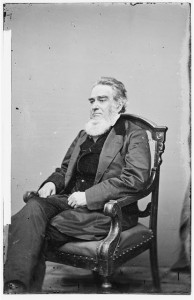No, it’s authorized by the Confiscation Act of 1861
From The New-York Times November 5, 1861:
… From the Wheeling Intelligencer, Nov. 1. …
MORE CONFISCATIONS.
Yesterday evening United States Marshal NORTON proceeded to the former residence of Dr. HOUSTON and took possession of all his household goods, under the act of Congress authorizing the confiscation of rebel property. Dr. HOUSTON left this city at the time of the great secesh stampede. He is now a surgeon in the rebel army, and a very good one, too; but that is only another reason why his property should be confiscated. Dr. HOUSTON’s agents were in the house at the time, supposed to be engaged in preparations to remove the property or transfer it to other hands.
It was not the intention of the Marshal to interfere with any more rebel property in the city until he heard from headquarters, but obtaining information that HOUSTON’s property was being removed, he stepped in upon the confidential agents and interfered with their operations. The seizure was forced upon the Marshal, and his duty was plain. A guard was placed upon the property last night.
You can read more about U.S. Marshal Edward M. Norton at The Intelligencer, including his written words to U.S. Attorney General Edward Bates in September, 1861: “We are surrounded here by traitors”.
According to the Wikipedia link about the Confiscation Act: “Lincoln gave Attorney General Edward Bates no instructions on enforcing the bill; as a result, few such confiscations occurred”. Edward M. Norton seems to have been more proactive.

